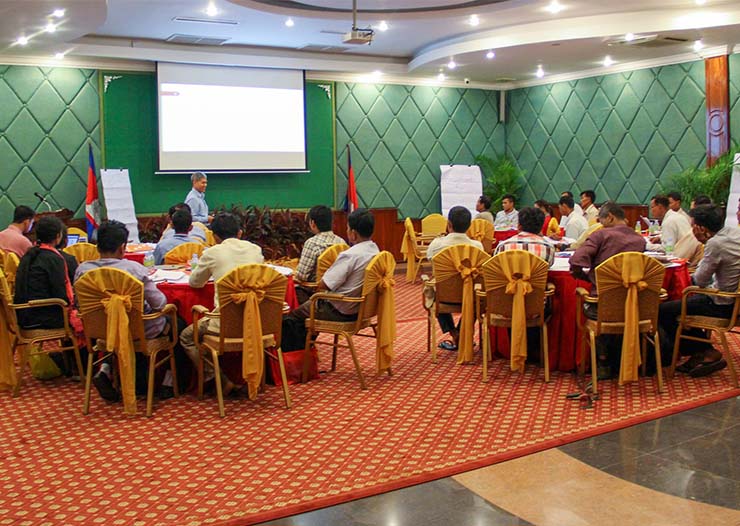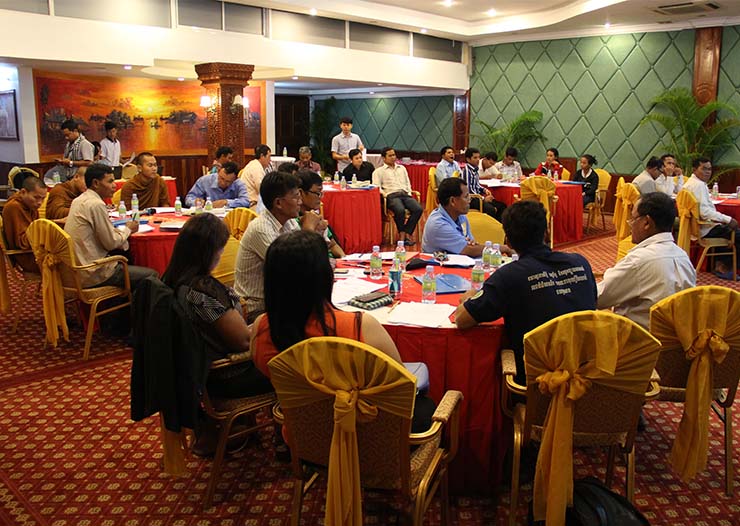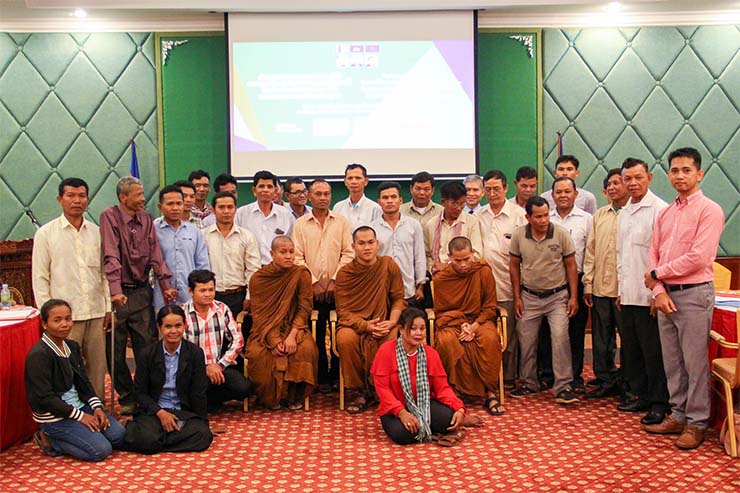
The NGO Forum on Cambodia organized Training Workshop on Forest Procedure and Relevant Legality Framework Including Legal Procedure, Patrol Procedure and Filing a Complaint at Siem Reap on 13-14 August, 2018. There were 33 participants (3 females and 3 monks) who are IP representative, Forestry/CPA network members and Prey Lang community network members. The capacity building to forestry stakeholders/target group or rights holders has basic knowledge on forest legality framework and how to implement forestry procedure linkage with existingframeworks, feel self-confidence to apply soft-advocacy with multi-stakeholders and they can also provide the right direction for solutions to concerned government departments in order to address key issues and respond to the real need of affected local community.
Mr. Pheap Sophea, Land and Forestry Program Manager, highlighted during his opening remark that the training workshop, he appreciated on the works of network members who have been working hard at the grassroots level in conservation efforts to protect natural resources and thus our training aim for to promote and strengthen network capacities to share knowledge and information better and more effectively on their works. He briefed the Objective of this training were: 1). Shared/exchanged and learning valid knowledge and experience related to forest legality framework procedure within forest law implementation enhance participants’ capacity in advocacy work. 2). Increased/cultivated awareness and knowledge related to forest management and governance perspective for better communication among project stakeholders especially specialized-government department with effectiveness and address real needs for affected people in target areas; and 3). Encouraged forestry network members to apply/ mainstream those knowledge skills into their work and monitor forest legality framework implementation at grassroots.

Patrolling Form of Monitoring and Evaluation Action Plan form was produced during the training workshop using participatory approach. All participants actively provided their experiences of patrolling and reporting skills. As the results, we had agreed patrolling form will produce for future monitoring and evaluation. Furthermore, drawings tools, using video clips and written articles of the laws as tools to the participants which were attracted and critical think while performing their duties in the CF and CPA law enforcement and management. Video Clips were about National Strategic Policy Development and Implementation while the articles are to back up the CPA and CF patrolling activities. The drawings could help clarify the concepts of policies, technical terms, and communication among stakeholders. For instance, there were difference between Slash and Burnt Agriculture and Rotation Agriculture.
Learned from the two-day training workshop, the training team would like to recommend some of the main points as following:
1. Some higher level of education, e.g. at least finished High School, of representatives of CF and CPA should be one of the selection criteria for invitation. There is not much benefit from the training if the participant could not read and write;
2. Although Site Visit was not included in the current training schedule, next possible events should be taken into consideration. Site Visit could help participants, especially those are not able to read training materials and could not write their ideas to communicate with instructor;
3. Training workshop for those CF and CPA representatives should be at least 5 days for them to practice “learning-by-doing” in class and in the field.

After the training course common action plan were developed, regularly coordinate and monitor with network member to ensure forestry network members and ensure that they apply forest legality framework concept/perspective with their target group and share knowledge to other and feedback after 6 months.